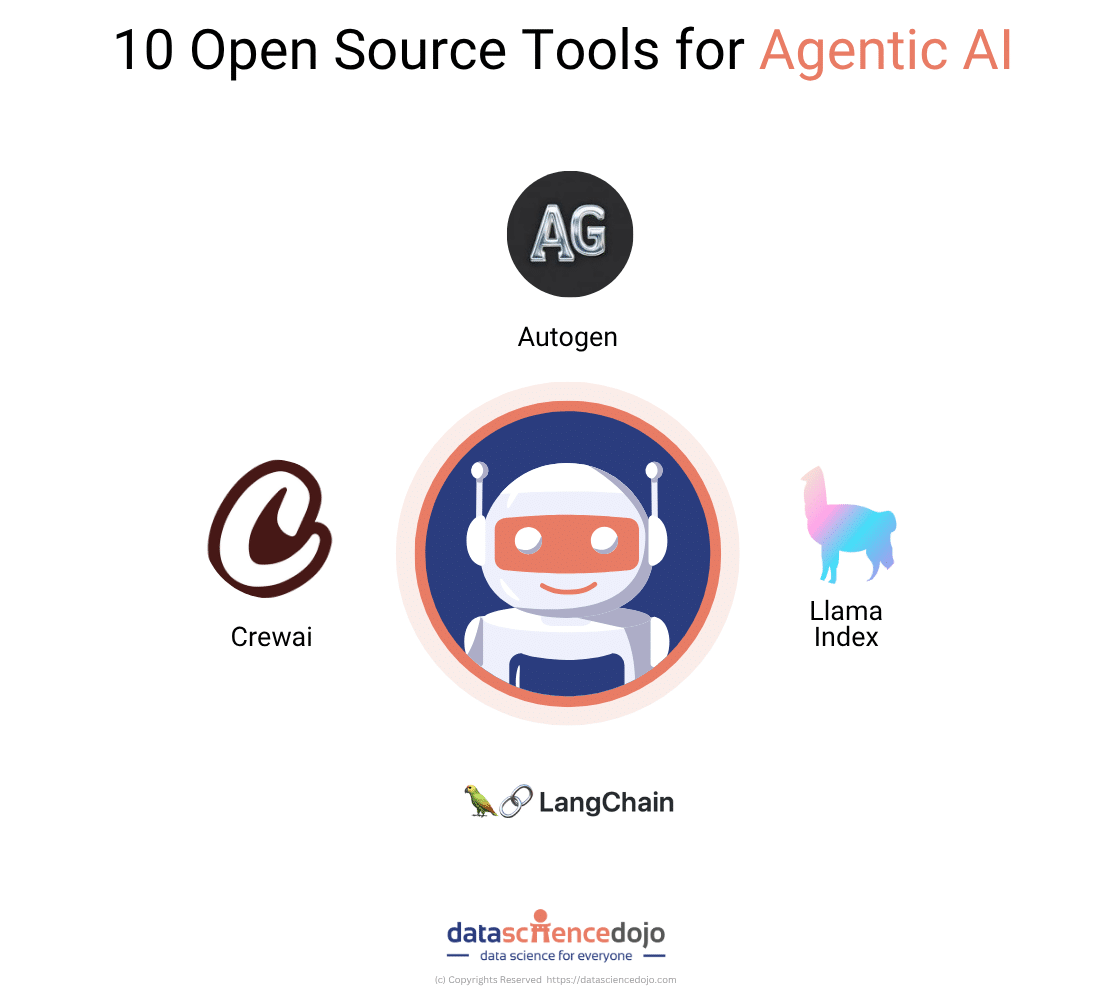Open source tools for agentic AI are transforming how organizations and developers build intelligent, autonomous agents. At the forefront of the AI revolution, open source tools for agentic AI development enable rapid prototyping, transparent collaboration, and scalable deployment of agentic systems across industries. In this comprehensive guide, we’ll explore the most current and trending open source tools for agentic AI development, how they work, why they matter, and how you can leverage them to build the next generation of autonomous AI solutions.
What Are Open Source Tools for Agentic AI Development?
Open source tools for agentic AI are frameworks, libraries, and platforms that allow anyone to design, build, test, and deploy intelligent agents—software entities that can reason, plan, act, and collaborate autonomously. These tools are freely available, community-driven, and often integrate with popular machine learning, LLM, and orchestration ecosystems.
Key features:
-
Modularity:
Build agents with interchangeable components (memory, planning, tool use, communication).
-
Interoperability:
Integrate with APIs, databases, vector stores, and other agents.
-
Transparency:
Access source code for customization, auditing, and security.
-
Community Support:
Benefit from active development, documentation, and shared best practices.
Why Open Source Tools for Agentic AI Development Matter
-
Accelerated Innovation:
Lower the barrier to entry, enabling rapid experimentation and iteration.
-
Cost-Effectiveness:
No licensing fees or vendor lock-in—open source tools for agentic AI development are free to use, modify, and deploy at scale.
-
Security and Trust:
Inspect the code, implement custom guardrails, and ensure compliance with industry standards.
-
Scalability:
Many open source tools for agentic AI development are designed for distributed, multi-agent systems, supporting everything from research prototypes to enterprise-grade deployments.
-
Ecosystem Integration:
Seamlessly connect with popular LLMs, vector databases, cloud platforms, and MLOps pipelines.
The Most Trending Open Source Tools for Agentic AI Development
Below is a curated list of the most impactful open source tools for agentic AI development in 2025, with actionable insights and real-world examples.
1. LangChain
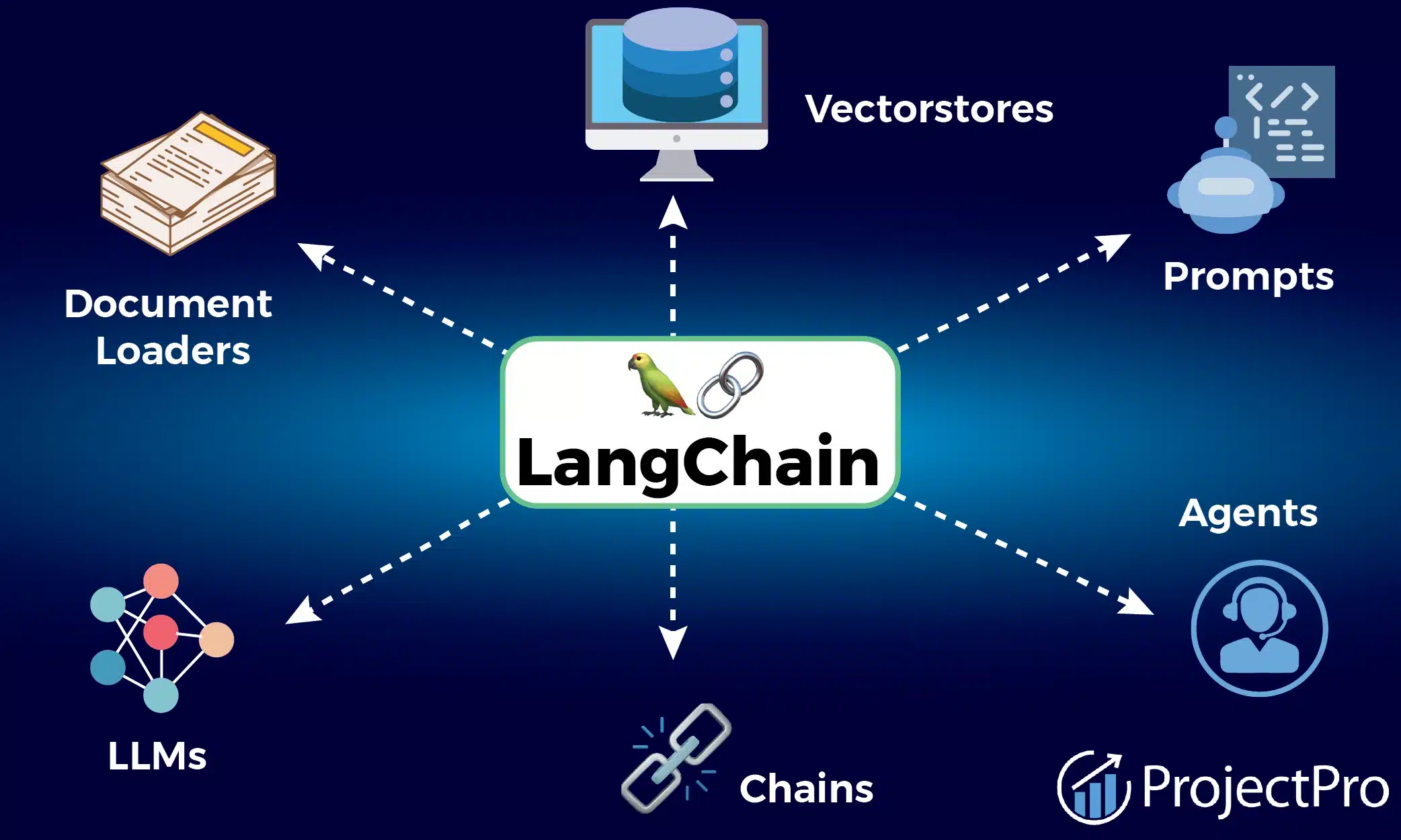
-
What it is:
The foundational Python/JS framework for building LLM-powered applications and agentic workflows.
-
Key features:
Modular chains, memory, tool integration, agent orchestration, support for vector databases, and prompt engineering.
-
Use case:
Build custom agents that can reason, retrieve context, and interact with APIs.
Learn more: Mastering LangChain
2. LangGraph
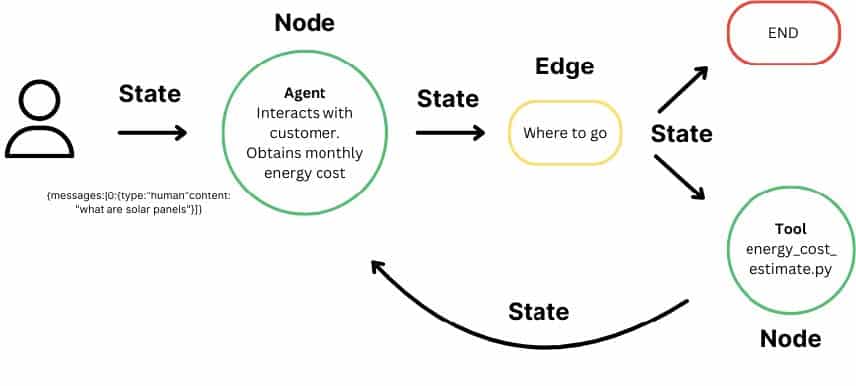
-
What it is:
A graph-based extension of LangChain for orchestrating complex, stateful, multi-agent workflows.
-
Key features:
Node-based execution, cyclic graphs, memory passing, async/sync flows, and human-in-the-loop support.
-
Use case:
Design multi-agent systems for research, customer support, or workflow automation.
Learn more: Decode How to Build Agentic Applications using LangGraph
3. AutoGen (Microsoft)
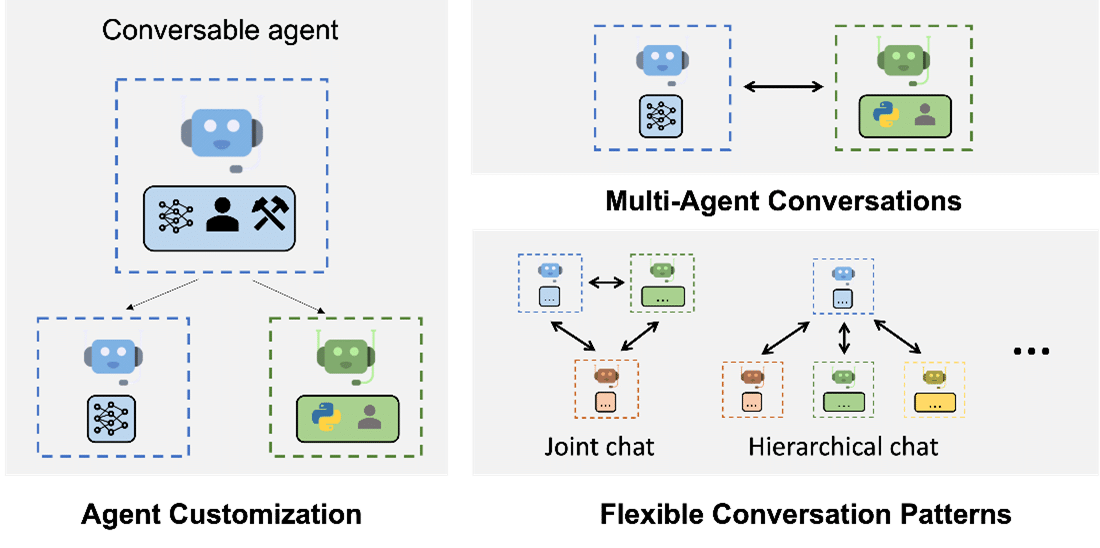
-
What it is:
A multi-agent conversation framework for orchestrating collaborative, event-driven agentic systems.
-
Key features:
Role-based agents, dialogue loops, tool integration, and support for distributed environments.
-
Use case:
Automate complex workflows (e.g., MLOps pipelines, IT automation) with multiple specialized agents.
GitHub: AutoGen
4. CrewAI
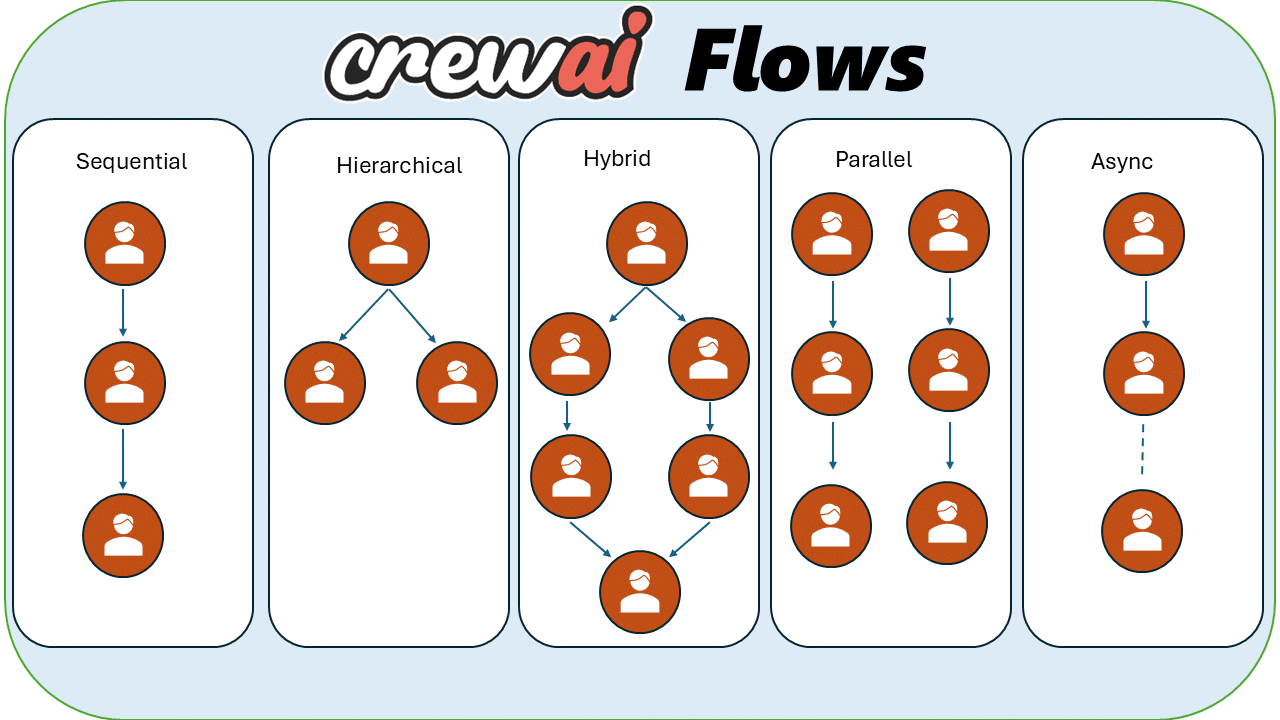
-
What it is:
A role-based orchestration framework for building collaborative agent “crews.”
-
Key features:
Assign roles (researcher, planner, executor), manage agent collaboration, and simulate real-world team dynamics.
-
Use case:
Content generation, research automation, and multi-step business processes.
GitHub: CrewAI
5. LlamaIndex
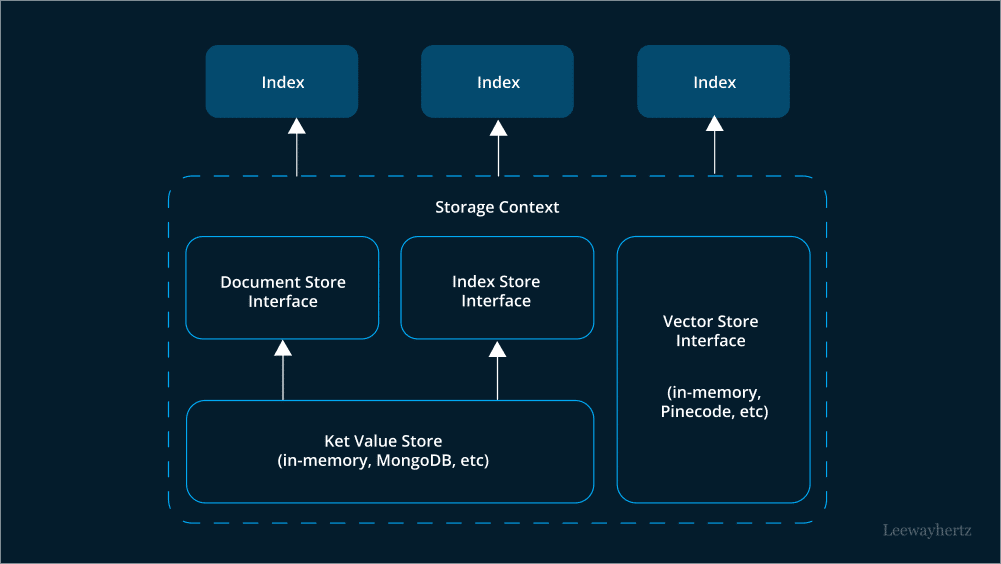
-
What it is:
A data framework for connecting LLMs to structured and unstructured data sources.
-
Key features:
Data connectors, retrieval-augmented generation (RAG), knowledge graphs, and agent toolkits.
-
Use case:
Build context-aware agents that can search, summarize, and reason over enterprise data.
Learn more: LLamaIndex
6. SuperAGI
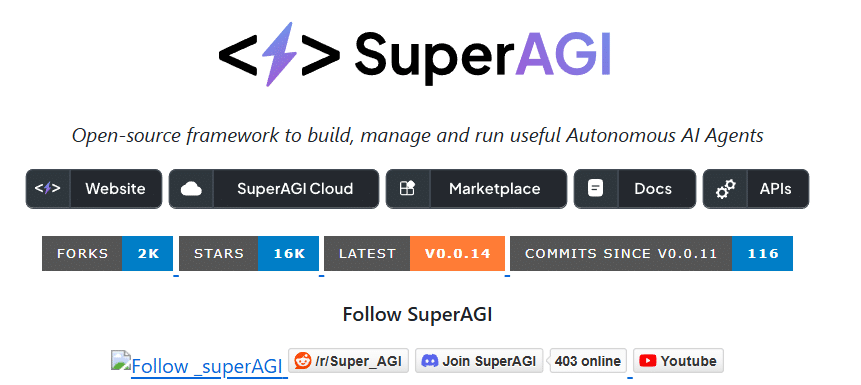
-
What it is:
A full-stack agent infrastructure with GUI, toolkits, and vector database integration.
-
Key features:
Visual interface, multi-agent orche stration, extensibility, and enterprise readiness.
-
Use case:
Prototype and scale autonomous agents for business, research, or automation.
GitHub: SuperAGI
7. MetaGPT
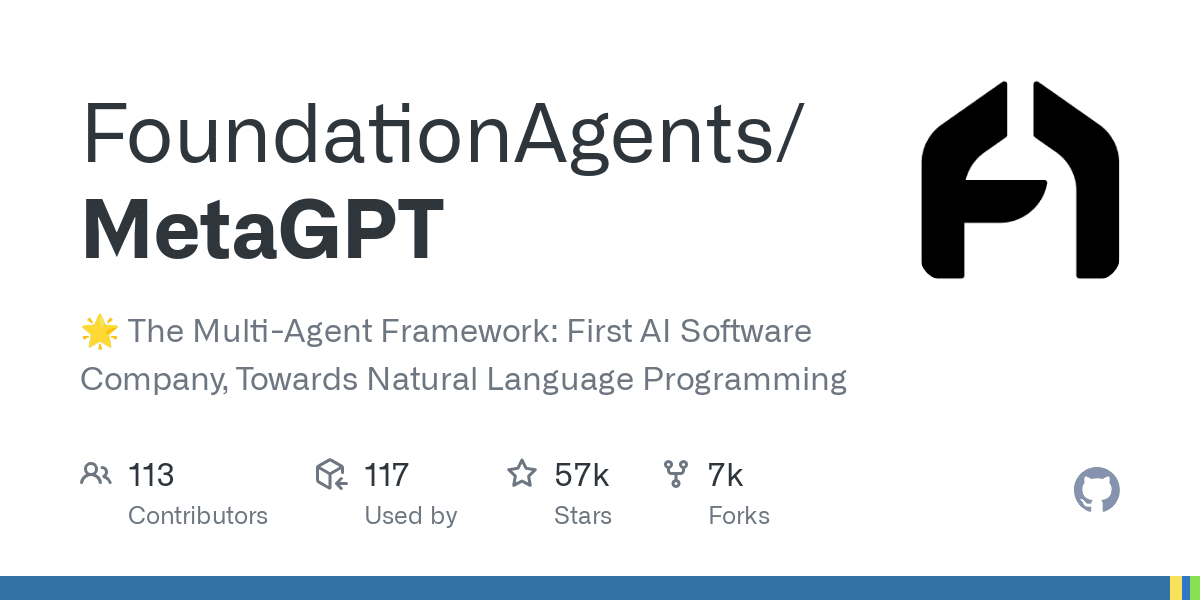
-
What it is:
A multi-agent framework simulating software development teams (CEO, PM, Dev).
-
Key features:
Role orchestration, collaborative planning, and autonomous software engineering.
-
Use case:
Automate software project management and development pipelines.
GitHub: MetaGPT
8. BabyAGI
-
What it is:
A lightweight, open source agentic AI system for autonomous task management.
-
Key features:
Task planning, prioritization, execution, and memory loop.
-
Use case:
Automate research, data collection, and repetitive workflows.
GitHub: BabyAGI
9. AgentBench & AgentOps
-
What they are:
Open source frameworks for benchmarking, evaluating, and monitoring agentic AI systems.
-
Key features:
Standardized evaluation, observability, debugging, and performance analytics.
-
Use case:
Test, debug, and optimize agentic AI workflows for reliability and safety.
Learn more: LLM Observability and Monitoring
10. OpenDevin, Devika, and Aider
-
What they are:
Open source AI software engineers for autonomous coding, debugging, and codebase management.
-
Key features:
Code generation, task planning, and integration with developer tools.
-
Use case:
Automate software engineering tasks, from bug fixes to feature development.
GitHub: OpenDevin, Devika, Aider
How to Choose the Right Open Source Tools for Agentic AI Development
Consider these factors:
-
Project Scope:
Are you building a single-agent app or a multi-agent system?
-
Technical Skill Level:
Some tools (e.g., LangChain, LangGraph) require Python/JS proficiency; others (e.g., N8N, LangFlow) offer no-code/low-code interfaces.
-
Ecosystem Integration:
Ensure compatibility with your preferred LLMs, vector stores, and APIs.
-
Community and Documentation:
Look for active projects with robust documentation and support.
-
Security and Compliance:
Open source means you can audit and customize for your organization’s needs.
Real-World Examples: Open Source Tools for Agentic AI Development in Action
-
Healthcare:
Use LlamaIndex and LangChain to build agents that retrieve and summarize patient records for clinical decision support.
-
Finance:
Deploy CrewAI and AutoGen for fraud detection, compliance monitoring, and risk assessment.
-
Customer Service:
Integrate SuperAGI and LangFlow to automate multi-channel support with context-aware agents.
Frequently Asked Questions (FAQ)
Q1: What are the advantages of using open source tools for agentic AI development?
A: Open source tools for agentic AI development offer transparency, flexibility, cost savings, and rapid innovation. They allow you to customize, audit, and scale agentic systems without vendor lock-in.
Q2: Can I use open source tools for agentic AI development in production?
A: Yes. Many open source tools for agentic AI development (e.g., LangChain, LlamaIndex, SuperAGI) are production-ready and used by enterprises worldwide.
Q3: How do I get started with open source tools for agentic AI development?
A: Start by identifying your use case, exploring frameworks like LangChain or CrewAI, and leveraging community tutorials and documentation. Consider enrolling in the Agentic AI Bootcamp for hands-on learning.
Conclusion: Start Building with Open Source Tools for Agentic AI Development
Open source tools for agentic AI development are democratizing the future of intelligent automation. Whether you’re a developer, data scientist, or business leader, these tools empower you to build, orchestrate, and scale autonomous agents for real-world impact. Explore the frameworks, join the community, and start building the next generation of agentic AI today.

